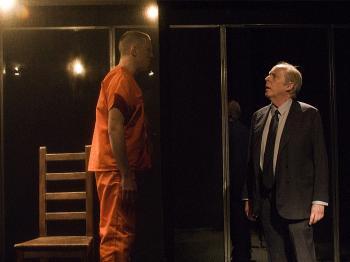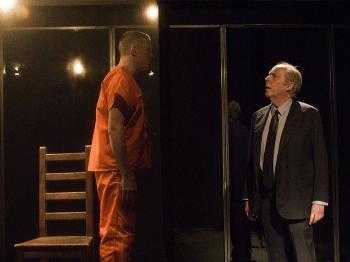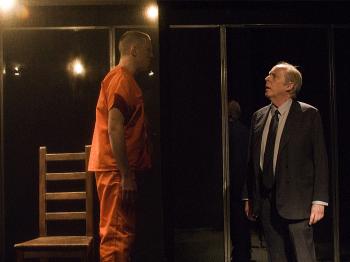In a maximum security prison in Terre Haute, Indiana, expatriate and left-leaning, James Brevoort (Peter Eyre), has come to interview Harrison (Nick Westrate), a twenty-something man who has been sentenced to die in a few days for his bombing of a building in Oklahoma, which resulted in the deaths of 168 men, women, and children. (Author White used the actions of bomber Timothy McVeigh as a starting point for his story.)
As a result of Harrison’s reading some of Brevoort’s articles and essays, the two began a correspondence, leading to Brevoort coming to Terre Haute for an exclusive death row interview, where he hopes to find out what exactly drove Harrison to commit this terrible act—a crime Harrison has readily admitted committing.
However, as Brevoort quickly finds out, things don’t go as planned (“you’re not as self-centered as the usual killer,” he comments to Harrison at one point). Indeed, Harrison is in no hurry to talk about the crime, instead trying to get a sense of Brevoort and why he is really here. Brevoort, who has received great criticism from the public and the press for defending and attempting to explain away Harrison’s actions, is flummoxed to say the least. Soon the question becomes just who is doing the interviewing and to what end.
Perhaps most intriguing is Harrison’s background. He served in the first Gulf War, has no racist or sexists tendencies (or so he says) and only wore a T-shirt saying “White Power” because he was sick of seeing T-Shirts saying “Black Power,” which he sees as its own form of racism. More importantly, he has no remorse for his actions, frustrating “normal” people who want to pigeonhole him in one sort of category or another.







